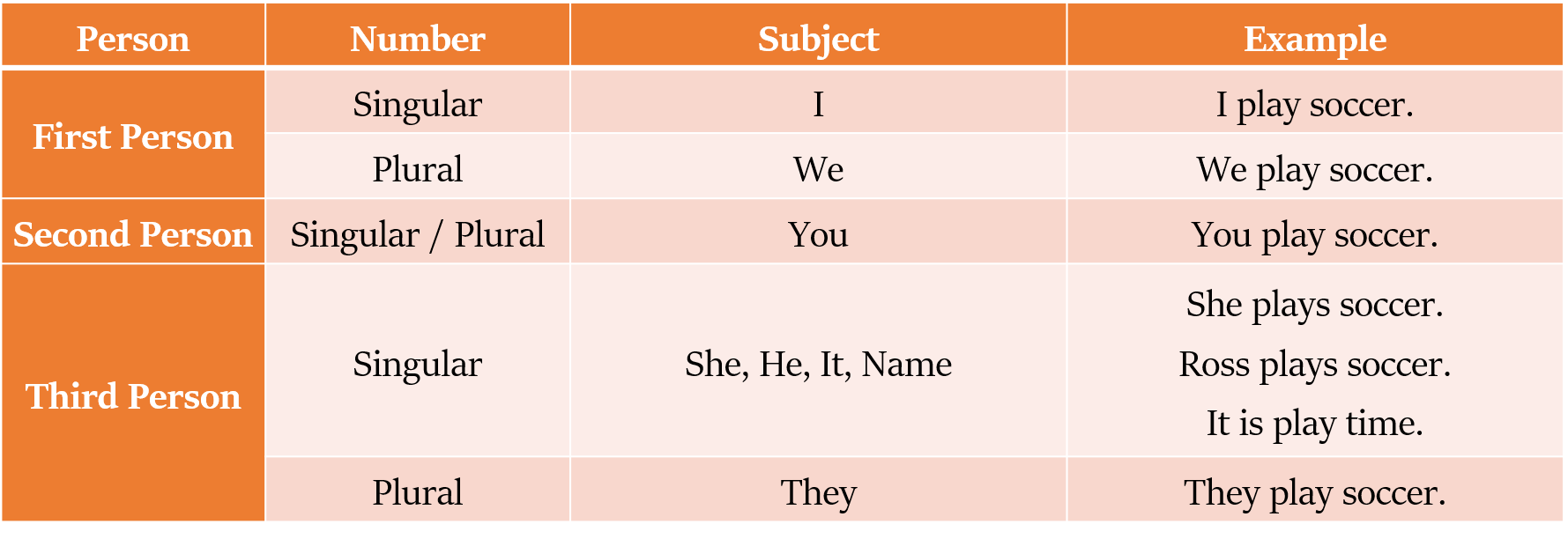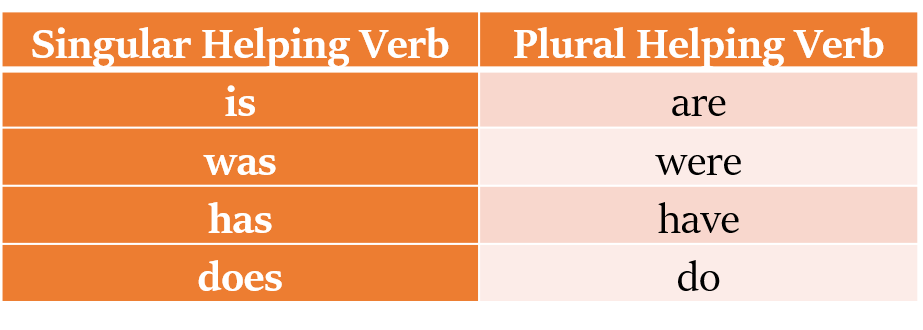Overview of Subject-Verb Agreement
Types of Agreement
Agreement is of two types:
Agreement based on form
Two boys are waiting for me. (two boys – form is plural, and so is the meaning. So plural verb ‘are’ used)
Agreement based on meaning/sense
Three kilometres are a long distance. (incorrect)
Three kilometres is a long distance. (correct; three kilometres – considered as one)
Though ‘Three kilometres’ seems plural in form, it’s singular in meaning. So, singular verb ‘is’ has been used.
Verb agrees with its Subject in Number
The Verb has two Numbers (just like Nouns/Pronouns):
the Singular number:
He plays. (He – singular subject in third person; play – verb is singular)the Plural number:
They play. (They – plural subject in third person; play – verb is plural)
Verb agrees with its Subject in Person
The Verb has three Persons (just like the Personal Pronouns):
the First person:
I play. (I – singular subject in first person; play – verb in first person)the Second person:
You play. (You – singular subject in second person; play – verb in second person)the Third. person:
She plays. (She – singular subject in third person; plays – verb in third person)
So, the Verb must agree with its Subject in Number and Person.

On seeing the table, you would have noticed that the verb ‘play’ changes form only in case of Singular Third Person (i.e. it becomes ‘plays’).
That is because in modern English verbs have lost all their inflections for number and person, except in the third person of the singular number. Thus we have :
- Singular Third person : He / She / It / Name plays.
- For all others: I / We / You / They play.
But there is one exception, i.e. the verb ‘be’.
- First Person: I am. (Singular) We are. (Plural)
- Second Person: You are. (Singular/Plural)
- Third Person: He is. (Singular) They are. (Plural)
We need to be familiar with singular and plural verbs:


The following verbs can’t be made singular or plural, i.e. they do not change form as per the number of the Subject :
- did
- had
- modals/semi–modals/idiomatic modals
Notice the following difference between verbs and nouns:
Noun becomes plural when s/es is added.
That is, Plural Noun is Noun + s/es
For example: Boys, Birds, etc.Verb becomes singular when s/es is added.
That is, Singular Verb is Verb + s/es
For example: plays, sleeps, sings, goes, etc.

Extra Books and Tools
If you prefer to learn via books, or want some good English Grammar books for reference purposes, you may read this article which enlists some of the books recommended by us.